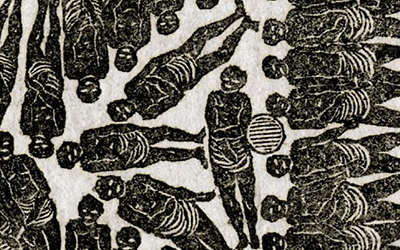Professor Trevor Burnard to give plenary address

Slavery and the Industrial Revolution: State Capitalism, the Great Divergence and the Power of Consumption in the Long Eighteenth-Century
Colloquium on "Terres Lointaines: Campagnies, Commerces, Colonies, 17th and 18th siècles"
Date: Poitiers, 10 October 2018
International Symposium organised by Elodie Peyrol-Kleiber (University of Poitiers), Susan Finding (University of Poitiers) and Bertrand Van Ruymbeke (University Paris 8 and IUF)
The complexity of the territorial acquisitions of England and then Great-Britain led historians of the 17 and 18 c. to take into account a vast geographical ensemble. With a fragmented appearance, this territorial and maritime space was nevertheless linked with the metropole thanks to multiple trading networks and as a consequence, human networks. Those far-off lands thus remained close to and dependent on England then Great-Britain and in return, some aspects of the English model were exported to the colonies.
Be it North-American colonies, English West Indies, India, Latin America, Africa or Indonesia, many of those networks were initiated by trading companies, true instigators of the commercial cohesion of the empires. Yet, were they true representatives of Great Britain and the other empires? To what extent were they linked to colonisation? How did they take part in the development of this first ‘empire’?
The Fond Dubois, deposited in the university library of Poitiers, reflects such issues, more specifically through the lense of major political economists such as John Locke, Edmund Burke, Charles Davenant, Jonathan Swift, Daniel Defoe and many others. They devoted their works to determining the place of the empire and the benefits that this growing empire had brought or could bring to the kingdom, but also to the population. Issues such as the usefulness of the South Sea Company and of the asiento in the South American Colonies and in the Pacific, or the debate preceding the independence of the Thirteen Colonies are discussed in the works of the Fond Dubois.
It is in this perspective that we wish to explore the phenomenon of colonisation and the building of the Empire, in the light of three words: companies, commerce and colonies, to show the diversity of the ‘English/British’ Empire during the 17 and 18 c. and to identify its different interactions, were they commercial, human, institutional, or political. What roles did those companies play and how did this Empire use them in order to extend its rule over most often far away territories? Was trade the main objective of those companies or did political plans underlie their creation and development?
Confirmed keynote speakers
Professor Trevor Burnard (the University of Melbourne) and Lou Roper (State University of New York at New Paltz)
The program will be available shortly.
Image: "Description of a slave ship," by an anonymous artist, wood engraving, 328 mm x 444 mm (detail). "This is one of several prints produced from the same woodblocks showing plans and sections of the slave ship "Brookes" of Liverpool. A model of the ship was used by William Wilberforce in the House of Commons to demonstrate conditions on the Middle Passage. The woodcut was first produced in 1786 to illustrate various works by Thomas Clarkson, and was then distributed separately by abolitionists." Courtesy of the British Museum, London.